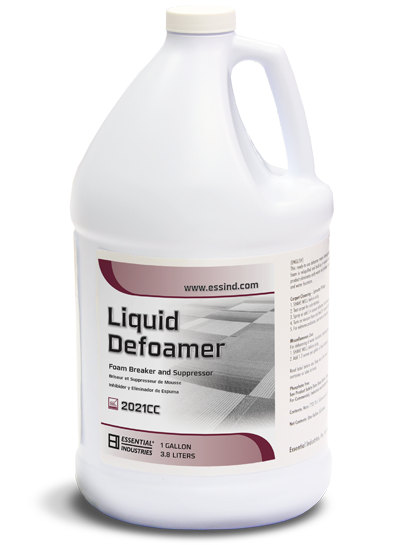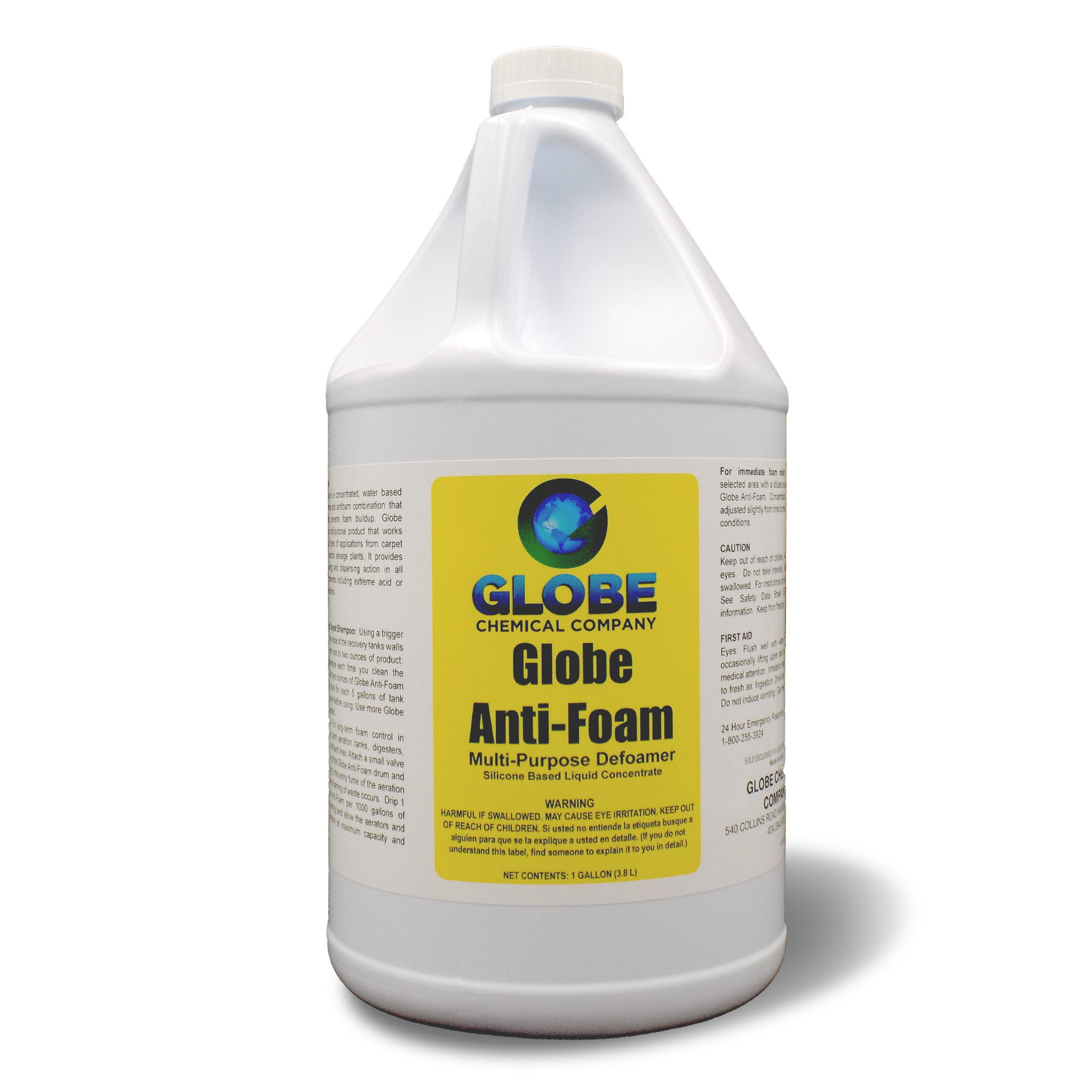Factors to Evaluate When Purchasing the Right Chemical Defoamer for Your Operations
Factors to Evaluate When Purchasing the Right Chemical Defoamer for Your Operations
Blog Article
Discover the Top Reasons You Need a Chemical Defoamer for Effective Foam Control
Chemical defoamers offer as necessary representatives that reduce foam development, consequently improving procedures in markets such as food production, pharmaceuticals, and wastewater therapy. As we explore the multifaceted benefits of chemical defoamers, it comes to be obvious that their duty extends beyond mere foam decrease, affecting overall productivity in methods that might not be immediately noticeable.
Boosted Operational Efficiency
The presence of foam can impede production by blocking equipment, minimizing capacity, and complicating process control. By minimizing surface stress, they facilitate the fast collapse of foam, enabling for smoother operation and lessening downtime.
In sectors such as food and drink, drugs, and wastewater treatment, the application of defoamers boosts process security and product top quality. For instance, in fermentation procedures, regulating foam generation is important for making the most of return and effectiveness. Additionally, the use of defoamers can bring about much more efficient mixing and oygenation, causing improved response times and total productivity.
Additionally, when foam is efficiently controlled, it lowers the threat of overflow and contamination, guaranteeing compliance with safety and quality criteria. This not just simplifies procedures but likewise permits better resource usage. Eventually, the assimilation of chemical defoamers into industrial processes promotes an extra reliable operations, maximizing output while preserving premium criteria. Hence, their duty in improving functional efficiency can not be overstated.
Expense Cost Savings and Resource Management

In numerous applications, extreme foam can trigger overuse of chemicals, leading to unnecessary expenditures. By regulating foam degrees, services can enhance their chemical input, consequently reducing functional prices.
In addition, minimized foam in processing systems can enhance the overall throughput, allowing centers to raise manufacturing capability without incurring extra prices - Chemical Defoamer. This reliable resource administration equates into significant financial advantages, enabling services to designate funds towards advancement or development. In recap, the combination of chemical defoamers into commercial procedures fosters an extra resource-efficient and economical atmosphere, ultimately supporting business growth and sustainability
Improved Product Top Quality

Making use of chemical defoamers plays an essential duty in boosting product top quality across numerous industries. Too much foam can bring about irregular product solutions, impacting the last qualities of items such as paints, finishes, food, and pharmaceuticals. By alleviating foam formation, chemical defoamers assist in smoother production processes, guaranteeing that formulations stay uniform and satisfy specific quality requirements.
In the food and beverage industry, as an example, the visibility of foam can affect the clearness and preference of products, eventually influencing consumer complete satisfaction. Chemical defoamers aid maintain the desired appearance and look, thereby improving the total quality of the end product. In the manufacturing of coverings and paints, foam can lead to problems such as pinholes and bad attachment, undermining the product's performance.
Additionally, using defoamers can boost the efficiency of processes like fermentation and emulsification, which are vital for achieving preferred item characteristics. By enhancing manufacturing and making certain consistent top quality, chemical defoamers not only improve the end product however likewise add to a positive brand name online reputation. Thus, investing in efficient foam control options is crucial for any business aiming to deliver top quality products regularly.
Equipment Protection and Durability
Reducing foam production is important for safeguarding equipment and ensuring its longevity in various industrial applications. Too much foam can bring about a series of operational issues, including equipment damages, boosted maintenance costs, and unplanned downtime. When foam gathers, it can trigger overflow, bring about spills that endanger the stability of machinery and bordering locations.
Furthermore, foam can block pumps and sensors, which can hinder efficiency and effectiveness. In severe cases, it can lead to the malfunction of elements, necessitating pricey repair services or helpful site replacements. By making use of a chemical defoamer, business can effectively mitigate foam development, thus safeguarding their devices from the harmful results of foam-related problems.
Along with protecting against damages, effective foam control can dramatically improve the operational life expectancy of machinery. With minimized wear and tear, tools can maintain peak efficiency levels for an extended period, converting to reduced general functional costs. Implementing a defoamer not only ensures functional efficiency however additionally adds to a more sustainable organization design by expanding the lifecycle of important assets. As a result, buying a high quality chemical defoamer is a proactive technique for shielding devices and cultivating durability in commercial setups.
Adaptability Across Industries
Chemical defoamers play a crucial function in numerous markets, properly attending to foam-related difficulties across varied applications. Their convenience appears in industries such as food and drink, pharmaceuticals, and wastewater therapy, where foam can impede look at this site procedures and reduce effectiveness. In the food market, defoamers make sure smooth manufacturing by avoiding foam development throughout read this article blending, fermentation, and bottling, consequently keeping item high quality and uniformity.

Additionally, in wastewater treatment facilities, chemical defoamers are used to manage foam during the aeration procedure, advertising optimal microbial activity and improving the general therapy effectiveness. Their capability to function effectively in high-shear and high-temperature environments even more emphasizes their adaptability.
Verdict
To conclude, the utilization of chemical defoamers is necessary for effective foam control across different sectors. Their ability to improve functional efficiency, generate considerable price financial savings, enhance product top quality, and protect equipment highlights their essential role in industrial processes. The flexibility of defoamers permits for extensive application in food production, pharmaceuticals, and wastewater treatment, ultimately adding to lasting growth and the maintenance of high operational requirements. The combination of defoamers is necessary for enhancing overall performance.
Chemical defoamers offer as important representatives that mitigate foam formation, thus improving procedures in markets such as food production, drugs, and wastewater treatment. As we check out the complex benefits of chemical defoamers, it comes to be evident that their duty expands beyond mere foam decrease, affecting general productivity in ways that may not be quickly obvious.
By minimizing foam development, chemical defoamers help with smoother manufacturing processes, ensuring that solutions stay uniform and fulfill given high quality requirements.
By using a chemical defoamer, companies can properly alleviate foam formation, hence protecting their tools from the harmful effects of foam-related problems.
In conclusion, the application of chemical defoamers is necessary for effective foam control across various sectors.
Report this page